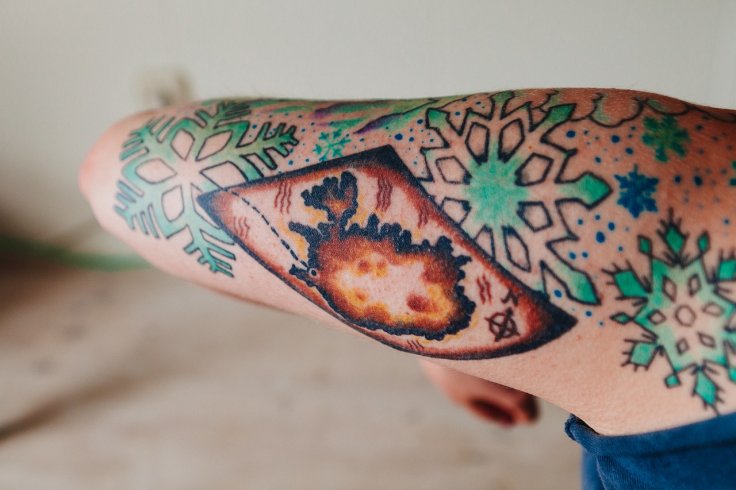Imagine being able to make a tattoo simply disappear if you are not interested in carrying it on your skin anymore? The scenario is now a reality. A new tattoo ink called Inque, developed by a Massachusetts-based company can be rendered colourless by exposing it to a low-powered laser.
"It's no longer this indelible mark that's left with you forever. You have the opportunity to enhance and modify it as your journey, your life and your story evolves," said Saleem Miyan of Bambu Global, said in a statement.
So what is Inque all about?
With roots in photography pioneer Polaroid Corporation's research on colour and chemical changes, the ink comprises of millions of microscopic beads known as blinking b. When exposed to a low-powered laser, the laser penetrates the beads turns them off. Thereby, in principle, causing discolouration of the ink.

Potential uses of Inque
This ink technology has the potential to find multiple uses. From improvements to existing tattoos to temporary ones that can be removed after serving a purpose. One such use could be in helping identify those suffering from conditions such as Type 1 Diabetes and are prone to attacks. In the absence of the existing methods of identification such as chains and bracelets, a tattoo of this kind can serve the purpose.
When the condition is under control and in remission, the tattoo can be made to simply disappear. The company has already started working in that direction through its INQUEAlert program. Due to its unique quality, the company intends to make sure that the mixing of this ink with regular inks does not occur. Therefore, it intends to launch its own high-end tattoo salons that provide tattoo's etched in the proprietary ink. BLANQUEing, the removal of tattoos drawn using INQUE, is another patented process related to this industry-disrupting ink.
Not the first ink that disappears
In 2016, Ephemeral, start-up helmed by graduates from New York University, developed an ink that faded after a year. This provides a tattoo enthusiast the opportunity to 'try' a design out for a year. If the tattoo is something that they do not desire to etch permanently, they can just let it fade. Also, the removal of this ink does not require sophisticated equipment and can be done by a qualified tattoo artist.
Regular tattoo inks are made up of very large molecules and are too big for the body's immune system to flush out. Hence, they remain permanent. Their removal uses lasers that pulverise the skin and remove the ink trapped in it. This enables the body to remove the ink through feces. However, the molecules of this ink are small and can be wiped off with a solution by the artist.
Some side-effects of tattoo ink
While both of the inks have attested to their non-toxicity, tattoo inks are known to cause harm to the skin. Some of them are:









